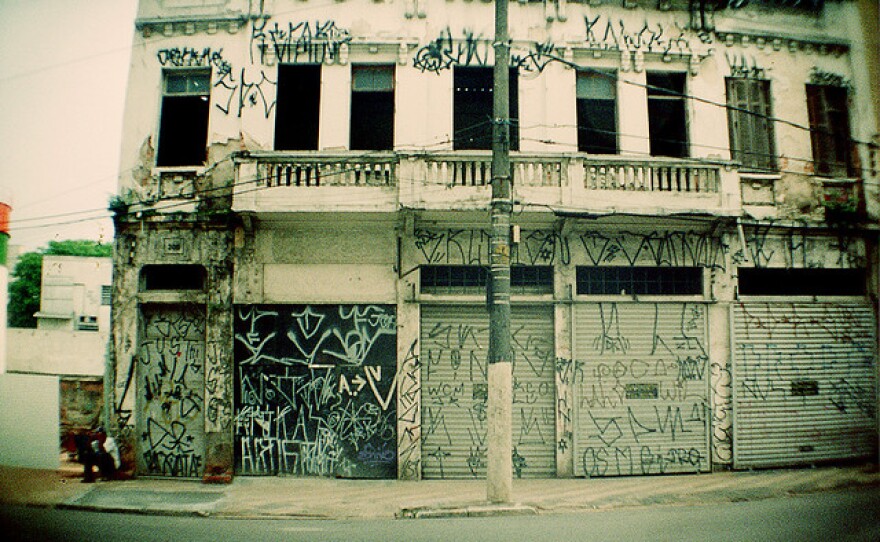It’s really difficult to pin down what you might call a manifesto of graffiti writers. Graffiti is always a political act, insofar as it questions and confronts some of our most basic ideologies, like our concept of property. Still, in America, writers are mostly not overtly political.
But, in general, we could say that graffiti culture’s central thesis is that art is crime, and crime is art. In this way of thinking, academic navel-gazing confined to art galleries and funded by extravagant wealth is the real crime, and the only proper response is to free the art from its confinement by forcing it into the environment.
Nowhere is this idea taken as seriously as in the Brazilian cities of São Paulo and Rio de Janeiro, where, for decades, a form of graffiti called pixação has been wreaking havoc. Pixação is literally translated as “tar writing,” and it’s unique in graffiti. It is brutal and jarring, with no fancy murals or beautiful colors. Often, it’s forced onto walls with roller brushes, and the alphabet is an unsettling angular script, influenced by runes and old heavy-metal fonts.
Taking the word “Vandal” quite literally, Pixação has been called “barbarian art.” And for many of the writers—called pixadores—this is the point. Why spend time creating something beautiful when you could destroy what is already assumed to be beautiful? After all, from the perspective of the pixadores, you cannot separate the immense wealth and opulence of the city—its skyscrapers and beach resorts—from the sprawling poverty of the favelas.
Beyond vandalism, if pixação can be said to have a point at all, it’s much the same as graffiti around the world—the point is to get your name up. To this end, the pixadores cover the city, often free-climbing the sides of buildings and billboards, painting the facades from top to bottom. As pixação has gone higher and higher, many pixadores have died, falling from the sides of skyscrapers in pursuit of a strange, ignoble fame.







